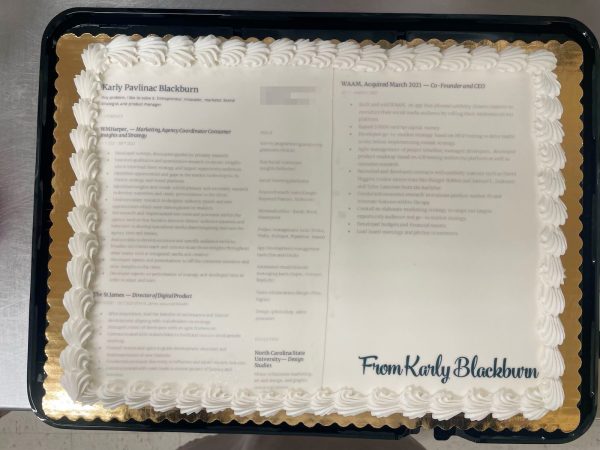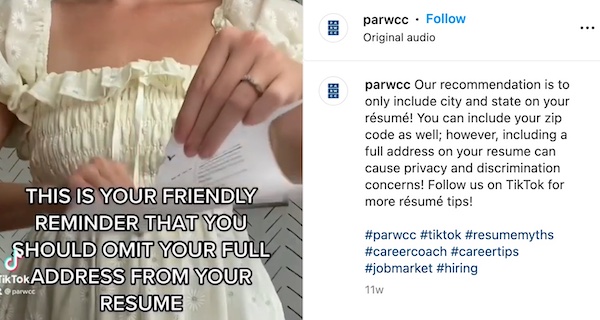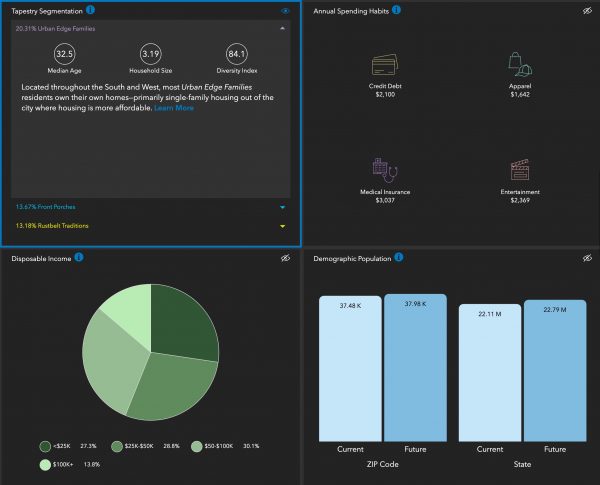If you’re not familiar with the story of Karly Blackburn’s cake resume, check it out — it tells of her clever idea to make use of Albertsons’ cakes with printed icing and Instacart’s delivery services to land a job interview at Nike by sending them an attention-getting CV. She tells the story in her own words on LinkedIn.
There’s only one thing I would’ve changed to her plan: I would have left out the street address from the contact info. An email address, phone number, and city and state are more than enough. These days, putting your street address on your resume is a bad idea.
Why did we put our street addresses on our resumes?

In the pre-internet era, you often got a response to your job application via postal mail, so it made sense to include your street address on your resume. It was a slower-paced era, when landing an interview could be a matter of weeks, rather than days or hours.
In this era of ubiquitous, instant internet communications, networked pocket computers always arm’s length away, and instantaneous access to databases packed with real estate and demographic information, it’s not just an anachronistic practice, but a potentially harmful one.
The Google factor
Consider this advice from a recruiter in one of my secondary LinkedIn circles:

At least this recruiter’s honest enough to write about their morbid curiosity on LinkedIn. With a couple of clicks on Google Maps, a recruiter, or more critically, a hiring manager can get a sense of your socioeconomic status, especially in hyper-segregated metros. You could be ruled out based on race or class and wouldn’t even know it.
Others may rule you out based on the distance between your home and the office, or more importantly, the time it would take for you to get there. This shouldn’t be their call to make, so why give them the tools to do so?
Even more troublesome: the Zillow factor
In a comment made in response to the recruiter above, another recruiter posted this reply…

…which leads me to something I overheard while waiting to board a flight in late August:

It was a conversation between a couple of recruiters who were talking about a hiring manager that they both knew. It went something like this, but with the hiring manager’s name changed:
Recruiter 1: So wait, what did Jerkass do? [Yes, I’m making it very clear that I changed the hiring manager’s name! — Joey]
Recruiter 2: It was a total dick move, but in a way, I gotta respect it. The candidate put his address on his CV. Big mistake.
Recruiter 1: Kind of old-fashioned, but not a killer. What’s the deal here?
Recruiter 2: Well, Jerkass — being Jerkass — enters the address into Zillow and finds out that the guy bought the place at the height of the market. He looked at the price history, and it was obvious the guy overpaid big time. Leveraged to the max.
Recruiter 1: You weren’t kidding about “dick move,” were you?
Recruiter 2: Jerkass doesn’t stop there. He looks at where the guy’s working now, and figures that he needs this job to cover his new expensive house, and uses that fact to play hardball during salary negotiation. The guy’s still making more than he did at his old job, but Jerkass knew he was in a tough spot, and talked him down 10K.
Recruiter 1: That there is some James Bond villain-style negotiating.
Recruiter 2: I know, right?
Even your zip code is too much info
Some folks, such as this person on Instagram, are providing good advice by telling people not to put their street addresses on their resumes, but they’re still saying that the zip code is okay. This is still a potential landmine, thanks to the Esri ZIP Code Lookup Tapestry.
If you’re based in the U.S., you can try it out. Visit the page, tap the Explore Your ZIP Code button, and enter your ZIP code. You’ll get a marketer-focused set of stats for your neighborhood that looks like this:
The ZIP Code Lookup Tapestry lists all sorts of things, including:
- The three largest marketing demographic categories in your neighborhood
- Average annual spending habits in your area: credit debt, apparel, medical insurance, and entertainment
- The levels of disposable income in your ’hood
This is just more data on which you could be judged on criteria that isn’t relevant to your work. Leave your zip code off your resume!
For more about this service, see this article: This Is What Marketers Think of You and Your Neighbors.



One reply on “Why you shouldn’t put your street address on your resume”
I get a lot of phone calls from scam recruiters. So many that I won’t agree to an interview from a very large employer in my area because that is the carrot they use. Anyway, I always look up recruiters workplaces on Google maps and zoom in on street view to make sure they have actual offices. Lots you can do with physical addresses.